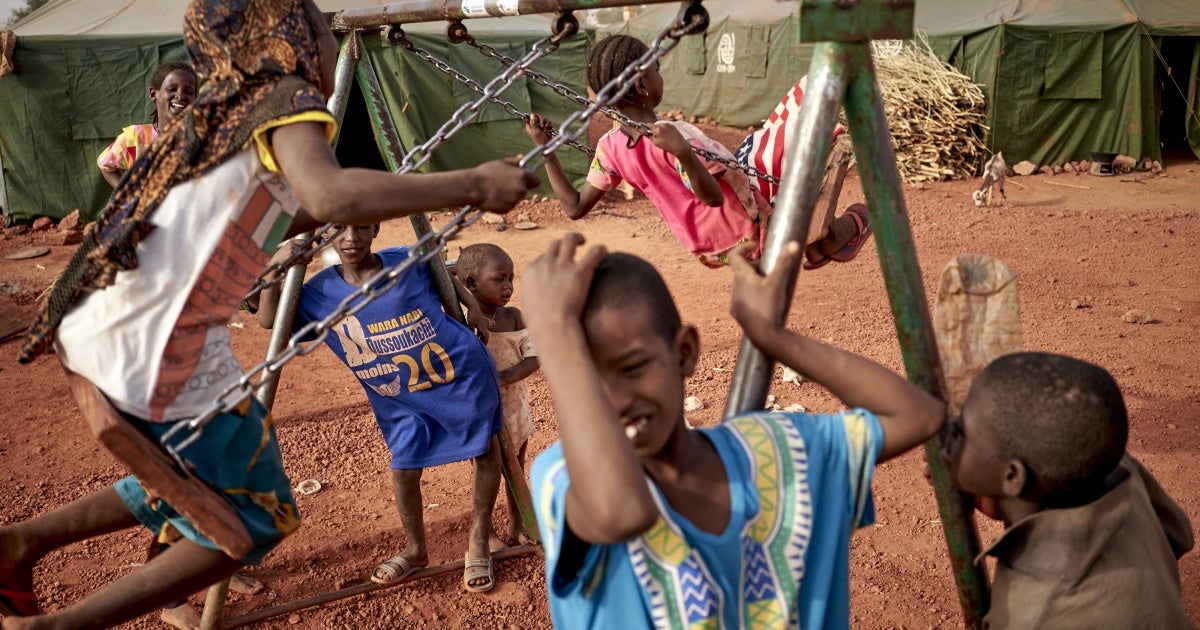Today, the United Nations marks the first International Day of Play, designed to recognize the vital importance of play, particularly for children’s development. It’s a chance to remember what is often described as a forgotten right, perhaps because many adults view playing and leisure as a luxury, or falsely assume it’s a given in every child’s life.
Playing is essential for children’s cognitive, emotional, social, and physical development. It teaches children to self-regulate and form relationships with their peers and caregivers, and is inextricably tied to early learning. In humanitarian crises, many children also rely on play to cope with and recover from hardship.
All children have a right to play, as laid out in the Convention on the Rights of the Child, the most widely ratified international human rights treaty. But Human Rights Watch research has found that many children cannot play safely or adequately, and some cannot play at all.
In the United Kingdom, accommodation used to house people seeking asylum, often for months, is frequently unfit for children to play. Families reported a lack of space and uncrowded areas being recurrent problems. This can affect children of all ages, from babies and toddlers learning to crawl, to teenagers hoping to enjoy recreational activities.
In Kabwe, Zambia, a town notorious for its extremely high levels of lead pollution, children face disastrous health risks when playing outside, because the soil on which they are playing is the main source of lead exposure in the town and its surrounding areas. This is due to contamination from a former lead and zinc mine that the government has still not cleaned up.
Some governments have violated children’s right to play sports. In Saudi Arabia, girls have only been allowed to play certain sports since 2018 and still face significant barriers limiting their participation in sports and physical activity. Since the Taliban takeover of Afghanistan in 2021, thousands of girls have also been denied the right to play sport. And in countries like Japan, Haiti, and Mali, children have faced significant abuse, including corporal punishment and sexual and gender-based violence, while engaging in sports.
This International Day of Play should provide impetus for governments to actively and consistently uphold children’s right to play, in safe, accessible, and appropriate settings free from abuse and discrimination.



